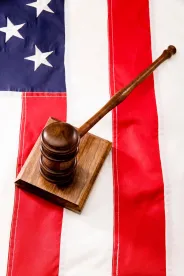For the second time in less than a month, the U.S. Supreme Court on June 12, 2017 granted certiorari in a case involving inter partes review. In Oil States v. Greene’s Energy Group, the Court has agreed to decide whether administrative patent trials, launched in 2012 by the America Invents Act, are Constitutional.[1] The case will decide if the AIA patent review program, which has resulted in over 1,500 final decisions declaring some or all challenged claims unpatentable, remains viable, or whether validity challenges must be heard by the district courts. A ruling that AIA patent trials are unconstitutional would result in substantial change to the current patent litigation landscape and strategy.
Background. Under the AIA, the U.S. Patent and Trademark Office in 2012 implemented a program for challenging the validity of issued patents. The statute authorizes three types of proceedings to challenge patent validity: Inter Partes Review, Post Grant Review, and Covered Business Method Review. Under the program, challengers may file with the Patent Trial and Appeal Board – the adjudicative arm of the PTO – a petition to declare unpatentable some or all claims of a patent. IPR proceedings, in particular, have proven to be extremely popular among patent challengers, who collectively have filed over 6,000 IPR petitions since the program was initiated.
Oil States involves a challenge to U.S. Patent No. 6,179,053 (“’053 patent”), which relates to technology used to protect oil well equipment during hydraulic fracking. Oil States, owner of the ’053 patent, sued Greene’s Energy Group for patent infringement. About a year after suit was initiated, Greene’s filed a petition for inter partes review, which the PTAB granted, based on prior art submitted with the petition. After trial, the PTAB issued a final written decision holding that the two challenged claims, 1 and 22, are unpatentable, and denying Oil State’s motion to amend the claims. Oil States appealed to the Federal Circuit, which issued a per curiam, one-line order affirming the PTAB’s decision. The Federal Circuit also denied a petition for rehearing and rehearing en banc. Oil States then filed its petition for certiorari.
Constitutionality of AIA Patent Reviews Challenged. Oil States contends that the AIA patent reviews are unconstitutional because, once granted, a patent bestows its owner with property rights, which cannot be revoked or canceled by a government official. Instead, according to Oil States, as to patent validity the Constitution guarantees patent owners the right to a jury trial before an Article III court – a right that is violated by administrative IPR proceedings that determine patentability of challenged patent claims. Oil States relies on several Supreme Court cases, including McCormick Harvesting.[2] According to Oil States, McCormick Harvesting stands for the proposition that a patent, once granted, is property entitled to protection as any other property, and that only the courts may set aside or annul a granted patent. On the other hand, Greene’s contends that patent grants are so-called “public” rights for which Congress may establish adjudicative proceedings before administrative tribunals and, as such, that the IPR regime enacted by Congress does not violate the Constitution; the Director of the Patent and Trademark Office has taken the same position.
Notably, while the Federal Circuit did not issue an opinion in denying the appeal by Oil states, the appellate court previously rejected similar arguments by another patent owner in MCM Portfolio.[3] In holding that the inter partes review is permissible under Article III and the Seventh Amendment, the court explained that McCormick Harvesting did not address Article III or bar Congress from granting authority to the PTO to correct or cancel issued patents. Rather, at the time of McCormick Harvesting the PTO lacked statutory authority to cancel issued patents, authority later granted beginning in 1980 with ex parte reexamination.[4]
Interestingly, constitutionality of ex parte reexamination was challenged shortly after Congress authorized the USPTO to conduct ex parte reexamination proceedings, and the Federal Circuit found that ex parte reexamination proceedings are not unconstitutional in Patlex.[5] There, the Federal Circuit not only ruled that reexamination proceedings violated neither Article III nor the Seventh Amendment, but also rejected a due process challenge based on the retroactive effect of the reexamination statute (an issue raised since the patent at issue was applied for prior to enactment of the reexamination provisions).[6]
Oil States presented two additional questions in its petition for certiorari, relating to the amendment process in IPR proceedings and to the “broadest reasonable interpretation” claim construction standard. The Court declined to address these questions.
Active Supreme Court. In granting certiorari in Oil States, the Supreme Court continues its recent active oversight of cases involving patents. Oil States is the third such case involving the relatively new AIA patent trial program. Last year in Cuozzo,[7] the Court held that the AIA barred any appeal of the Board’s decision to institute trial, which would include the specific grounds for trial as determined by the PTAB and matters closely related to the PTO’s determination, but that judicial review is not necessarily precluded for constitutional questions (such as due process), or certain other matters. Cuozzo also held that the regulation establishing use of the “broadest reasonable construction” standard for claims involved in IPR trials was a reasonable exercise by the PTO of its rulemaking authority. And just a few weeks ago in SAS,[8] the Court granted certiorari to decide whether the PTAB is required under the statute to address, in its final written decision, patentability of all claims challenged in a petition for IPR, or whether it may limit the final written decision to only some of the claims challenged in the petition. Merits briefing is underway in SAS, which will be heard, as will Oil States, during the October 2017 term. Interestingly, the grant of certiorari in Oil States comes after the Court had previously declined to review questions regarding Constitutionality of the AIA patent review program in three prior cases, including rejection of a petition for certiorari brought after the Federal Circuit’s ruling in MCM Portfolio.[9]
Issue of Paramount Import. Oil States will determine whether IPRs (and very likely other trial proceedings for determining patent validity under the AIA patent trial program) will continue to provide an alternative venue for hearing patent validity challenges. Given the emergence of patent trials before the PTAB as one of the most popular patent venues in the country over the last five years, the question of Constitutionality presented to the Court is of the utmost importance. If the Court ultimately decides that the AIA patent trial program does not pass Constitutional muster, and requires patent validity challenges to be heard by the courts, it will dramatically change the landscape for patent litigation, as well as the strategy employed by patent litigants.
Furthermore, a ruling that AIA patent trials are unconstitutional could raise substantial and important questions as to the status of all of the patents having claims declared unpatentable (or patentable) by the PTAB in one of those trials. For example, would those rulings remain valid determinations? Could patent owners “revive” or enforce claims declared unpatentable? And could litigants reopen district court infringement cases that were terminated after an adverse PTAB ruling?
[1] Oil States Energy Servs., LLC v Greene’s Energy Group, LLC, No. 16-712 (cert. granted June 12, 2017).
[2] McCormick Harvesting Mach. Co. v. Aultman, 169 U.S. 606 (1898).
[3] MCM Portfolio LLC v. Hewlett-Packard Co., 812 F.3d 1284 (Fed. Cir. 2015).
[4] Id. at 1289.
[5] Patlex Corp. v. Mossinghoff, 758 F.2d 594, as modified, 771 F.2d 480 (Fed. Cir. 1985). Patlex was not reviewed by the Supreme Court, so it remains to be seen whether constitutionality of ex parte reexamination proceedings might be revisited.
[6] Similar to the circumstances in Patlex, the ’053 patent was filed before enactment of the AIA. Although the question presented in Oil States does not appear to raise a due process challenge to retroactivity, if the Supreme Court ultimately were to decide in another context that inter partes review is unconstitutional on that basis, such a ruling may not impact post-grant reviews – since post-grant reviews cannot be filed against pre-AIA patents and thus the statute would have no retroactive effect.
[7] Cuozzo Speed Technologies, LLC v. Lee, 136 S.Ct. 2131 (2016).
[8] SAS Institute, Inc. v. Lee, No. 16-969 (cert. granted May 22, 2017).
[9] See MCM Portfolio LLC v. Hewlett-Packard Co., 137 S. Ct. 292 (2016) (No. 15-1330); Cooper v. Lee, 137 S. Ct. 291 (2016) (No. 15-955); Cooper v. Square, Inc., 137 S. Ct. 475 (2016) (No. 16-76).





 />i
/>i

